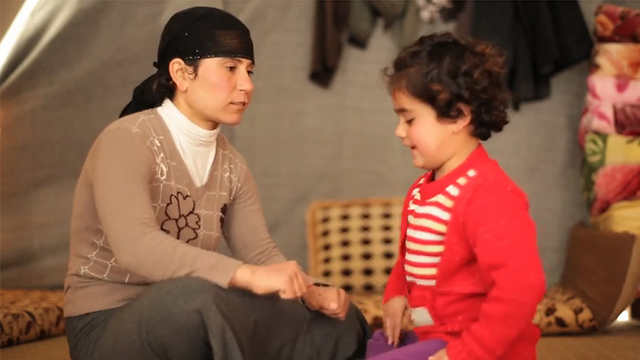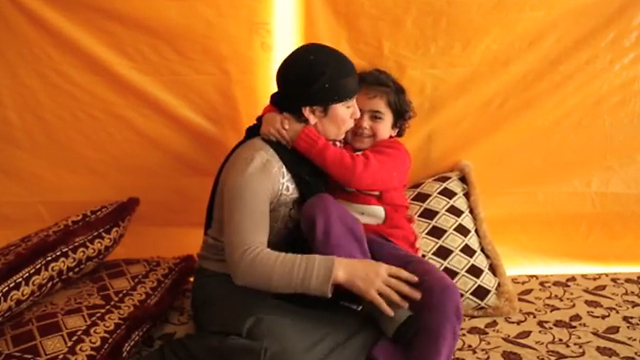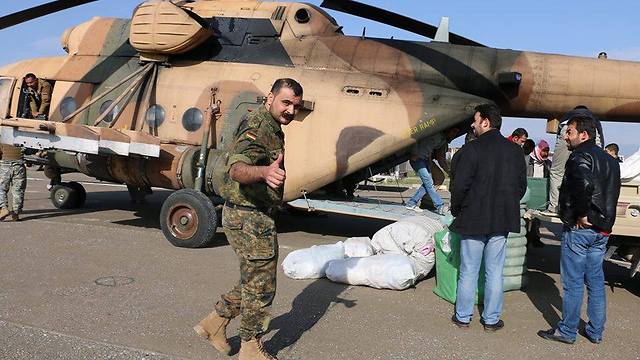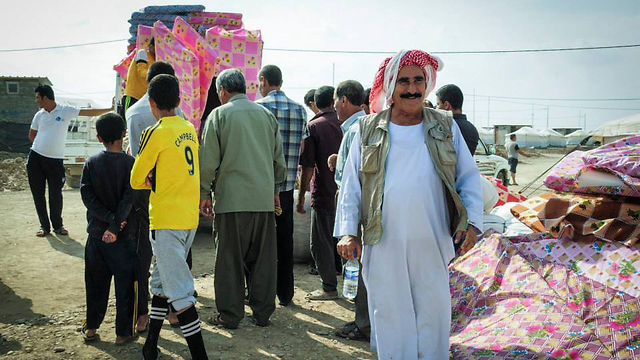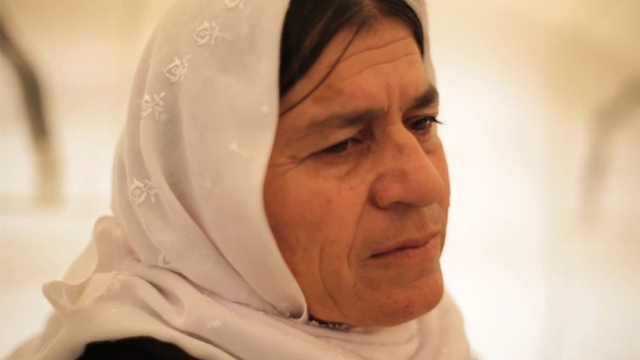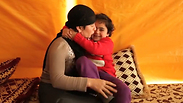
“This camp looks like a jail,” a resident of Nusaybin, told The Media Line, before asking that their identity not be revealed for fear of retribution from the camp’s authorities, the Disaster and Emergency Management Directorate (AFAD). “We are refugees, we’re not in jail.”
The resident said that recently officials had temporarily detained two people because they had been asking to leave the camp, and that many others had been similarly treated. Another resident, 25-year-old former English student Hadi Khairy, confirmed that the handling of refugees at Nusaybin had become worse since some occupants had left the camp and tried to cross the border into Bulgaria in late June.
Khairy, a man from the Yazidi heartland in the far north of Iraq, was among more than 2,500 refugees who tried unsuccessfully to cross the border fromYazidi refugees, who have fled slaughter and persecution at the hands of the Islamic State (ISIS) in northern Iraq are finding little comfort in Turkey. Authorities running refugee camps have allegedly introduced restrictions on freedom of movement following an attempt by a number of Yazidis to flee into Bulgaria.
Khairy, a man from the Yazidi heartland in the far north of Iraq, was among more than 2,500 refugees who tried unsuccessfully to cross the border from Turkey into Bulgaria.
“The Turkish authorities forced us to come back, and beat some of us,” he told The Media Line. “The situation here is so difficult, and it’s impossible to go back to Iraq.”
Yazidis are a distinct monotheistic religious community of perhaps 700,000, practicing a non-Abrahamic faith mostly based on the ancient Persian religion Zoroastrianism, but also heavily influenced by Christianity and Islam. The group has been persecuted for hundreds of years, and many claim to have been the victims of at least 72 massacres. A great deal of the oppression was under the rule of the Ottoman Empire, from which the Turkish republic was founded.
The cause for much of the persecution is the Yazidis’ worship of the fallen “Peacock Angel” (Melek Tawwus), who they believe fell from grace but was forgiven. This belief has led to many accusing them of devil-worship.
Turkey to Bulgaria
“The Turkish authorities forced us to come back, and beat some of us,” he told The Media Line. “The situation here is so difficult, and it’s impossible to go back to Iraq.”
Yazidis are a distinct monotheistic religious community of perhaps 700,000, practicing a non-Abrahamic faith mostly based on the ancient Persian religion Zoroastrianism, but also heavily influenced by Christianity and Islam. The group has been persecuted for hundreds of years, and many claim to have been the victims of at least 72 massacres. A great deal of the oppression was under the rule of the Ottoman Empire, from which the Turkish republic was founded.
The cause for much of the persecution is the Yazidis’ worship of the fallen “Peacock Angel” (Melek Tawwus), who they believe fell from grace but was forgiven. This belief has led to many accusing them of devil-worship.
Amy L. Beam is an independent activist and researcher who has visited eleven of Turkey’s Yazidi refugee camps. She confirmed that she was not given access to AFAD-run camps in Nusaybin and Midyat, and that movement is heavily restricted.
“They’re guarded with barbed wire and armed soldiers, and visitors are turned away,” she said.
A statement from AFAD denied the allegations, stating “(Refugees) staying in the shelter camps are completely free to either stay in or leave the camps… Voluntary return (to their original homes) or exiting the camps is permitted. Remaining at the camps is not obligatory for anyone.” AFAD also maintained that journalists and foreign activists can enter any facility with permission from the Turkish Foreign Ministry.
A number of camps are also being operated by municipal governments run by the pro-Kurdish Peoples’ Democratic Party (HDP). These facilities, where 7,000 to 7,500 Yazidi refugees are staying, are more open to outsiders and residents have freer movement.
“Our goal here is to help people integrate back into a community again,” Koçer Sason, the director of a municipality-run camp in Çınar, just outside of Diyarbakır, told The Media Line.
“We’re trying our best not to call it a camp, but a group of people who are trying to be a community,” the camp director said.
The national government isn’t supportive of HDP-run camps, accusing their organizers of playing politics and trying to win influence with refugees, in an effort to sway them towards the Kurdish cause. The government has declared that refugees should stay on state-run AFAD camps, which have been internationally praised for their reasonably good conditions.
The Yazidis are mostly ethnic Kurds who speak the same Kurdish dialect as most of Turkey’s Kurds. Turkey’s militant Kurdistan Workers’ Party (PKK), which heavily influences the HDP, and its Syrian affiliate the People’s Protection Units (YPG), have been the primary groups defending Yazidis from ISIS in Iraq.
Sason stresses the solidarity of the Kurds. “We’re trying to take care of our people.”
But most of the refugees who tried fleeing to Bulgaria last month were from the HDP-run camp at Çınar, and complained of bad conditions there.
“The kids are going crazy, everyone’s going crazy. It’s so hot,” 45-year-old Dahil Silo, one of the residents of Çınar who tried to cross into Bulgaria, told The Media Line. Summer temperatures regularly reach well over 100 degrees Fahrenheit.
“We don’t care what country we go to. We just want to be safe,” Silo exclaimed.
At the camp in Çınar, high-protein food is scarce, schooling for the children is intermittent, and a makeshift open-air hospital where surgeries are performed is unsanitary. The situation is so bad that there have been four suicides there, and the residents fear more.
Funding for the HDP municipality-run camps comes mostly from donations, since municipalities don’t have budgetary control and the state doesn’t give them money for the camps. Most of the camp workers are volunteers.
A recent report from the Turkish Association for Research Center on Asylum and Migration (İGAM) stated that the scarce resources on the HDP-run camps are quickly running out.
Another serious problem is that most foreign NGOs have been denied visas to work on the camps.
“Over a hundred NGOs applied for visas to come and work in the Kurdish-run camps, and their visas were denied,” Amy L. Beam said. Only a small handful of mostly medical NGOs have been allowed in.
Omar Edo is a 30-year-old resident of Çınar with a wife and one-year-old child who was also among those trying to flee to Bulgaria. He said that he and his family do not feel comfortable in Turkey because they don’t speak Turkish, it’s too close to ISIS territory and they have come to fear Muslims.
“This isn’t our place,” Edo said. “We don’t want to live with Muslims. We can live with anybody but Muslims.”
Though the vast majority of Turks are peaceful, moderate Muslims, the Yazidis’ fear stems from religiously motivated attacks from the jihadist Islamic State, who consider Yazidis devil-worshipers. There have been no reported attacks on the Yazidis in Turkey, though threats have allegedly been made, and Turkey is rumored to be home to many ISIS members.
Murad Ismael, an American from Sinjar who runs the Sinjar Crisis Group, said that he understands why his fellow Yazidis in Turkish camps are afraid.
“They are in trauma and are not feeling safe in the camps,” he said over the phone from Houston.
Ismael advised the refugees, who don’t have passports, against making the expensive trip to the Bulgarian border on rented buses because he knew they wouldn’t be let in, but said that they were driven by despair.
“They said we just can’t stay in these conditions anymore. (But) it’s the feeling of desperation I guess, and of not being safe.”
According to the İGAM report, Yazidis are “barely informed about their status in Turkey,” which is quite complicated, and due to the lack of official information, they rely mostly on rumors. The report said this may be why the Yazidis erroneously thought they could cross into Bulgaria.
Last August ISIS attacked the Yazidis in Sinjar, killing thousands and taking prisoners as slaves, in what the United Nations has called a possible genocide. Forty thousand took to Mount Sinjar, where hundreds died from the harsh climate and lack of water. At least 350,000 have fled to Iraqi Kurdistan in the north, and tens of thousands escaped to Turkey, where about 14,000 live in refugee camps, and several thousand more live outside the camps. About 10,000 remain on the north side of the mountain, which is controlled by Kurdish forces.
Iraqi Yazidi parliamentarian Vian Dakhil begged the government and international community to “Save us! Save us!” during an emotional speech last August. “An entire religion is being exterminated from the face of the earth,” she wept, before collapsing into tears.
The attack was only the latest onslaught against the persecuted group. In 2007, over 500 Yazidis were killed in the deadliest incident of the Iraq war, allegedly carried out by al-Qaeda, who consider them infidels.
Hadi Khairy, the English student, plans like many others on trying to make it to Europe again.
“We will try again. We have no other choice,” he said.
Murad Ismael said that American air strikes against ISIS had helped, but pleaded for more international support.
“If we don’t stand with one another at this time, that really puts the very principles of humanity (at risk),” he said. “We must stand with the Yazidi community.”















